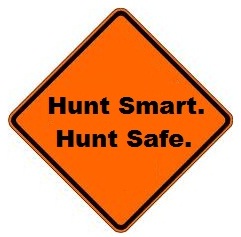
 Cooler temperatures are upon us, and for many people in this region, that leads to excitement as they plan their next hunting trip. Hunting is an extremely popular outdoor pastime in the South, but it’s also an endeavor that requires preparation and some basic first aid knowledge to ensure that everyone is safe.
Cooler temperatures are upon us, and for many people in this region, that leads to excitement as they plan their next hunting trip. Hunting is an extremely popular outdoor pastime in the South, but it’s also an endeavor that requires preparation and some basic first aid knowledge to ensure that everyone is safe.
As part of your state’s requirements for obtaining your hunting permit or license, you probably had to pass a hunting safety course or learn a little about outdoor safety. Depending on what and where you hunt, you’ll want to build on that base of knowledge to ensure you know what to do in case of emergency. Even if you’re a seasoned hunter, as the old saying goes, “It’s better to be safe than sorry!”
Getting Started with Hunting Safety
First Aid Training
You may want to look into taking a basic first aid or wilderness first aid course. The American Red Cross offers these nationally. This training can provide you with essential skills to deal with urgent situations, including how to perform CPR, what to do in the event of a burn, and how to stop bleeding.
This knowledge, along with your first aid kit, will be invaluable if anything happens to you or someone in your party.
First Aid Kit
You can purchase a pre-made first aid kit at any number of locations, including your local pharmacy, or you can develop your own. Even if you purchase a ready-made kit, it’s a good idea to evaluate it and add to it based on your needs.
For example, you’ll want to add any medications you take to your kit and, depending on where you’ll be hunting, you may need additional supplies.
Below is a basic list of things that are always good to have on a hunting trip:
-
- First aid instruction manual
-
- Tweezers
-
- Knife
-
- Bandages
-
- Alcohol wipes
-
- Surgical tape
-
- Over-the-counter pain reliever
-
- Latex gloves
-
- Lighter or matches
-
- Scissors
- Thermometer
In addition, you may want to consider bringing along:
-
- Water bottle with filter
-
- GPS or compass
-
- Flashlight
-
- Socks to prevent blisters or change into if you get blisters
- Re-sealable plastic bags
Other Hunting Safety Tips
-
- Stay hydrated; dehydration is a serious medical condition. Bring and drink plenty of water.
-
- Wear brightly colored clothing specifically designed for hunters so that other people in the area can see you and don’t mistake you for game.
-
- Check the weather and plan ahead for any inclement conditions.
-
- Make sure your hunting equipment is well maintained and carry firearms in a proper case.
-
- Avoid drinking alcohol or drug use so as not to impair your judgment.
- When possible, go with at least one other person so you have someone with you if you need help. If you’re going alone, make sure people know where you are.
The best thing you can do to ensure your safety while hunting is to be well informed about the area you’ll be in, the animals that live in that area, and any potential emergencies that could occur. With the proper training, supplies, and preparation, you’ll be well on your way to a safe, fun, and exciting hunting trip!
